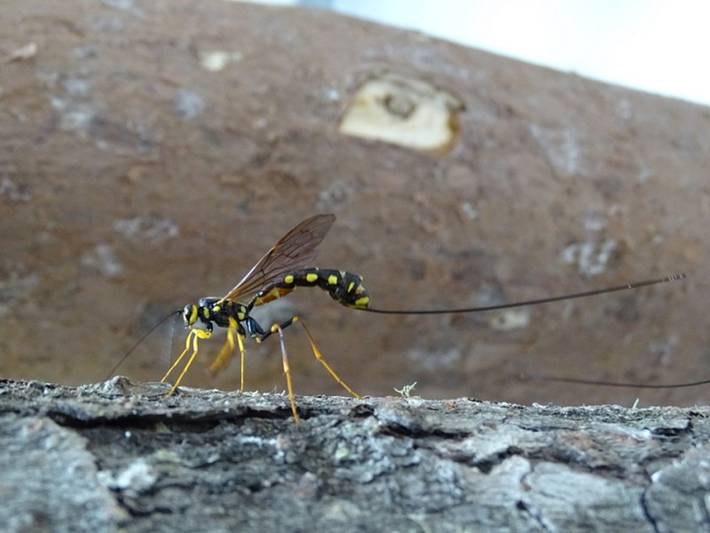Insect fertility directly related to changing climate and global warming

A study on insects has found that males when subjected to heat stress become infertile before females do. The study also explained how the temperature at which an animal is developed impacts its reproductive behaviour and physiology. The study published in the Journal of Evolutionary Biology examined sperm production and the copulatory behaviour of male and female Indianmeal moths.
Dr Graziella Iossa, an evolutionary ecologist, said: "It is well known that the reason why testes are usually located outside the body cavity in male mammals is because sperm is damaged by excessive heat inside the body. However, it is now becoming clear that when subjected to heat stress, males become infertile before females do." "It is not only intriguing that males and females show different sensitivity to temperature stress, but it may also tell us something about how species will be affected by climate change and how we might buffer or tackle these sensitivities," added Iossa.
Dr Iossa and Dr Paul Eady, a behavioural ecologist, have been leading research in this area for a number of years. The Indianmeal moth produces two types of sperm - a fertilising eupyrene and a non-fertilising apyrene sperm. The production of both sperm types is hampered by rising temperatures.
The moths were exposed to different temperatures (ranging from 20 - 33degC) during their development and up to the point when, as adults, they were ready to mate. The study found that sperms got shorter (and were, therefore, less effective) the higher the temperature the moths were exposed to, and that both males and females were less likely to engage in copulation when reared at the highest and lowest temperatures. When they did copulate, the duration also decreased with increasing developmental temperature.
Studies looking at the impact of climate change on species have looked so far at the ability of species to survive under heat stress. Dr Iossa and Dr Eady are among the first scientists to examine how different temperatures impact the reproductive behaviour of a species and thus fertility. Previous works on other insects and also plants have found that you can mate females who have been heat-stressed to non-stressed males, and they can produce offspring, however, the reverse doesn't work - heat-stressed males are often infertile. This shows that spermatogenesis (the production of sperm) appears more sensitive to heat stress than oogenesis (the production of eggs).
"These results are interesting because it is extremely important to understand how different species and different sexes will be affected by rising temperatures as the climate is changing," explained Dr Iossa. "Models of the long-term impact of climate change on populations have focused on upper and lower critical thermal limits (CTLs), beyond which species survival is compromised. However, research now suggests that species may become infertile - therefore could become extinct - at a much lower temperature," Dr Iossa added.
"Our study is consistent with current evidence that the production of sperm and mating behaviour are sensitive to developmental temperature and, in an era of global warming, further research in this area - examining both male and female fertility - is vital. The survival of natural populations ultimately depends on individuals being able to reproduce," said Dr Iossa.
ALSO READ
Mercedes-Benz India Accelerates with 8 New Models in 2025
There is need to develop warning systems for earthquakes; scientists and researchers should work in this direction: PM Modi.
Building AI models that make optimal decisions, not just predictions
Starry Start: Unveiling Future Space Scientists
Scientists Develop Eco-Friendly Copper-Based Nano Catalyst for Sustainable Industrial Applications










